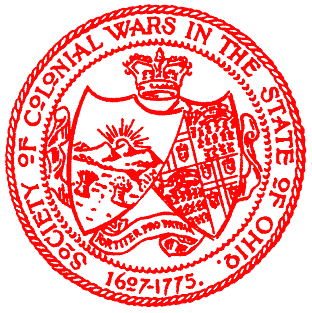:: Colonial Wars
1610 - 1646 |
|| | Anglo-Powhatan Wars | || | English and Native allies vs. Tsenacomoco Confederacy |
Three wars fought between the English settlers of the Virginia Colony and Natives of the Tsenacomoco Confederacy, which was led by Chief Powhatan, leading to its secondary name, the Powhatan Confederacy.
| 1610 - 1616 | First War | |
| The already tenuous relationship between the two peoples deteriorated further after poor harvest incited the colonists to take some of the Natives meager harvest by force. Raiding became common on both sides, and after a few years an aggressive new leader arrived, nobleman Lord de la Warr, who decided to conquer the Native tribes. He sent a captive's hand with demand to chief Powhatan, and after receiving no response raided a minor tribes capital, capturing, and later slaughtering, the minor chieftains wife and children. Starting the first Anglo-Powhatan war. | ||
| 1614 | The Peace of Pocahontas | |
| After a year of stalled negotiations peace was sealed by the marriage of Pocahontas, Chief Powhatan's captive daughter, to the colonist John Rolfe. This was the first interracial marriage in North American history. This peace lasted until Pocahontas, Rolfe and the English governor left for London, and Chief Powhatan died. | ||
| May, 1616 | ||
| Virginia's Deputy Governor George Yeardley and a group of men killed 20 - 40 Chickahominy Natives. It was under Yeardley's leadership that friendly relations between the Chickahominy and the colony ended. | ||
| 1622 - 1632 | Second War | |
| March 22, 1622 | Jamestown Massacre | |
| Powhatan Natives, who were planted among the colonists, suddenly kill 347 English settlers throughout the Virginia colony, a third of its population, which would have been higher, if not for the last minute warnings of Christianized natives. This triggered the second Powhatan war | ||
| This massacre was used as justification for the slaughter of natives and the seizure of land for many years afterwards. One settler is quoted as saying: | ||
| We, who hitherto have had possession of no more ground than their waste and our purchase at a valuable consideration to their own contentment. . . may now by right of war, and law of nations, invade the country, and those who sought to destroy us: whereby we shall enjoy their cultivated places. | ||
| The English took revenge against the Powhatan by any means they could, they burned corn, destroyed boats and homes, destroying traps, assaulting their hunters and fisherman and allying with their enemies against them. These tactics were so successful that Chief Opechancanough, the new Powhatan Chief, sued for peace in 1623. The English agreed to parlay, but poisoned the Natives liquor at the ceremonial toast, disabling them, and then attacked. Around 200 natives were killed, but Chief Opechancanough escaped. | ||
| Fighting continued intermittently until peace was declared in 1628, though it ended up as little more than a ceasefire. Fighting continued in March of 1629, and then a final peace was made in Sept. of 1632. | ||
| 1644 - 1646 | Third War | |
| Fighting resumed on March 18, 1644 when a last effort to uproot the settlers of the Virginia Colony was made by the remnants of the Powhatan Confederacy. The Natives managed to kill around 500 colonists, but by this time 500 was barely a tenth of the population. Chief Opechancanough, still trusting Powhatan tactics, chose once again not to follow up on this attack. This allowed the settlers to regroup and march against the entire confederacy. In August of 1645 Governor William Berkeley led an assault on Opechancaough's main stronghold, capturing him. Opechancanough, who is believed to have been around 92 years old at the time and needed a litter to move around, was taken to Jamestown, where he was shot in the back by one of his guards. This fractured the tribes of the confederacy, and led to the Treaty of 1646 | ||
| October, 1646 | Treaty of 1646 | |
| The peace treaty made the new Powhatan Chieftain Necotowance, and all of the former confederation tribes agree to become tributaries to the King of England, and delineated a racial border which required a special pass to cross. |
